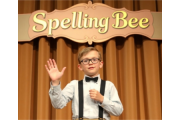See more Rock Tuff stories!
It was the strangest case I had ever had, but then, with my former student, Carl Brown, as a client, that was not surprising.
“I’d like your help, Mr. Tuff, but I can’t afford to pay you much.”
“That’s all right, there’ll be no charge,” I assured him quickly and foolishly. “What are you working on?”
“It’s kind of an historical whodunit and I want to try my ideas on you.”
I hoped he wasn’t trying to prove that someone had killed a suicide like Dido or Cleopatra.
“You know that often a person who is convicted and executed for an assassination is later believed to be innocent.”
“Like Patrick Whelan and Thomas D’Arcy McGee.”
“Yes, and Lee Harvey Oswald and John F. Kenney and Sirhan Sirhan and Robert Kennedy, and James Earl Ray and Martin Luther King. Well I have strong doubts that John Wilkes Booth killed Abraham Lincoln. Oh, he was involved all right, but he didn’t pull the trigger.”
“There was a theatreful of witnesses,” I reminded him.
“But it was dark and everyone was watching a play. Besides, Booth was a professional actor and had performed in Ford’s Theatre. People don’t usually commit murder in their workplace. Would you have killed anyone at Blandsville High School?”
Actually, there were a number of people I could gladly have dispatched in the halls of BHS, but I didn’t have a gun.
I have been in Washington twice on short visits, but I have never visited the Theatre. I wish I had, but it has probably been renovated.
“Next,” said Carl, “how good a marksman was Booth? I don’t know, but the killer held the gun right behind Lincoln’s head, suggesting that he wanted to be sure of hitting him.”
“It was not time to demonstrate his prowess at long-distance shooting,” I remarked.
“Then Booth, probably as instructed, leaped from the box to the stage, but he was no acrobat.”
“True. He proved that by breaking his ankle.”
“And his cry to the audience, Sic semper tyrannis ꟷ how many people in the audience knew enough Latin to understand it? They probably thought he was yelling about an ill dinosaur. Wasn’t he more likely to shout ‘This is for Jefferson Davis’ or ‘That’ll teach him to start a war with the South’ or ‘Gotcha, Abe’?”
“It was no time for a prolonged oration,” I said. “Then he rode south out of Washington with his broken ankle which was set for him by Dr. Samuel Mudd.”
“Booth was a Southerner. Of course he would ride south ꟷ and of course he would want his ankle treated.” Carl could be very logical.
“And a few days later, if I remember correctly, he was cornered in a barn by a posse and killed. If he was innocent, why didn’t he surrender?”
“To a gang of angry, armed men, shouting at him? He was probably scared. Wouldn’t you be?”
I can be scared by many less terrifying things: rush-hour traffic, a policeman about to give me a traffic ticket, dissatisfied fathers and mother at parent-teacher interviews.
“Okay,” I conceded, “let’s say Booth didn’t shoot Lincoln. That raises the very important question: Who did? There were thousands of Confederate soldiers and civilians who would have been glad to do it.”
“True,” Carl agreed, “I thought of that. Isn’t it always the person you least suspect?”
“And whom do you least suspect?”
“Harriet Beecher Stowe.”
“The author of Uncle Tom’s Cabin?”
“The same.” I was flabbergasted.
“Why would she shoot Lincoln…or anyone?”
“Pique. Remember, when she met Lincoln, he said: ‘So this is the little lady who made this big war.’ How would you like to be accused of starting any conflict as bloody and destructive as the U.S. Civil War?”
I wouldn’t want to be accused of starting an argument over a parking space in a mall parking lot. “Was she proficient with guns? Did she have a vindictive nature? And was she in Washington when the assassination took place?” I asked.
“I have to check those points.”
“If she isn’t guilty, do you have any other suspects?”
“Of course. Stephen Douglas, who was humiliated in a debate by Lincoln; Union generals such as George McClellan who were removed from command by Lincoln; parents whose sons were killed while serving in the Union army.”
“Well, good luck in your research. By the way, did you get that dog?”
“Yes. Two, in fact. We named them Abraham and Mary.”
Sounds like a rock duo, I thought, and a not-too-successful one.
I also thought, with some trepidation, of the many other historical murders Carl might decide to “solve”.





